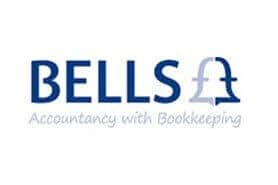There are few headlines that pop up consistently in the media, almost on a daily basis. Brexit is one topic, while the other is the Budget and this one saw quite a bit of build-up again this year. The time finally arrived, earlier than usual and rather notably on a Monday no less, when the Chancellor unveiled his spending plans for the forthcoming year. Let’s take a look at what is in store for the immediate and medium term.
An end to austerity
The much trailed and long anticipated time seems to have finally arrived. After years of austerity, the Chancellor has put forward some good news for individuals and businesses. This is based on his projections that the growth forecast for 2019 has been increased from 1.3% to 1.6%, with additional rises for the next four years to follow. Almost 3.5 million more people are in work and 800,000 jobs are forecast to be created between now and 2022. Wage growth has been at its highest for the last 10 years. With this in mind, the Budget includes the following:
- Increased personal tax allowance. From April 2019, this will rise to £12,500 (from the £11,850 it is at currently) before the 20% basic rate of tax kicks in. The 40% threshold will apply once earnings are above £46,350, while the two higher tax rates will move in line with inflation.
- The National Living Wage will go up to £8.21/hr from April as well.
Fuel, alcohol and tobacco
There is a mix of good and bad news for those who enjoy a drink or smoke:
- Fuel duty remains frozen – for the ninth year in a row now.
- Duties on beer, spirits, and cider will be frozen, although the price of a bottle of wine will go up by 8p from February, which is in line with inflation.
- Cigarettes, cigars, and tobacco will all see rate rises.
Housing
The Chancellor has put forward measures for both individuals and businesses here, including:
- Plans for partnerships with housing associations, designed to deliver 13,000 homes in England and guarantees to be put in place to enable smaller house builders to increase development, valued at up to £1 billion.
- The Housing Infrastructure Fund will receive £500 million to enable up to 650,000 new homes to be built.
- Good news for first-time buyers of shared equity homes with a value of up to half a million pounds who will now be eligible for first-time buyers’ relief.
Borrowing, debt, and investment
The public borrowing is lower than what was forecast back in March and will total £11.6 billion, while debt as a share of GDP has dropped to 83.7% and is expected to fall further by the 2023-2024 financial year. The government has also pledged to invest further in:
- The NHS, schools, and University Enterprise Zones.
- Roads and infrastructure – with a growth in investment in the latter by up to 30%.
- The environment – through tree planting and dealing with flytipping and waste sites, as well as introducing a tax on plastic packaging that contains less than 30% recyclable material.
Business
Small businesses will see a welcome relief on rates of up to a third over the next two years, applicable to those with a value rated at £51,000 and less. Apprenticeship levy contributions for small businesses will also be cut by half, dropping form 10% to 5%. Finally, changes to self-employment tax will be extended from 2020 onwards to cover medium and large organisations.
Find full details on every element of this year’s Budget on the gov.uk site, or contact Bells Inc. Hamilton Stewart for more information or to find out how these changes can impact you and your business. Our team of experts is here to advise and assist, whenever you need us. All you need to do is give us a call on 020 8763 1711 or send us an email at .


